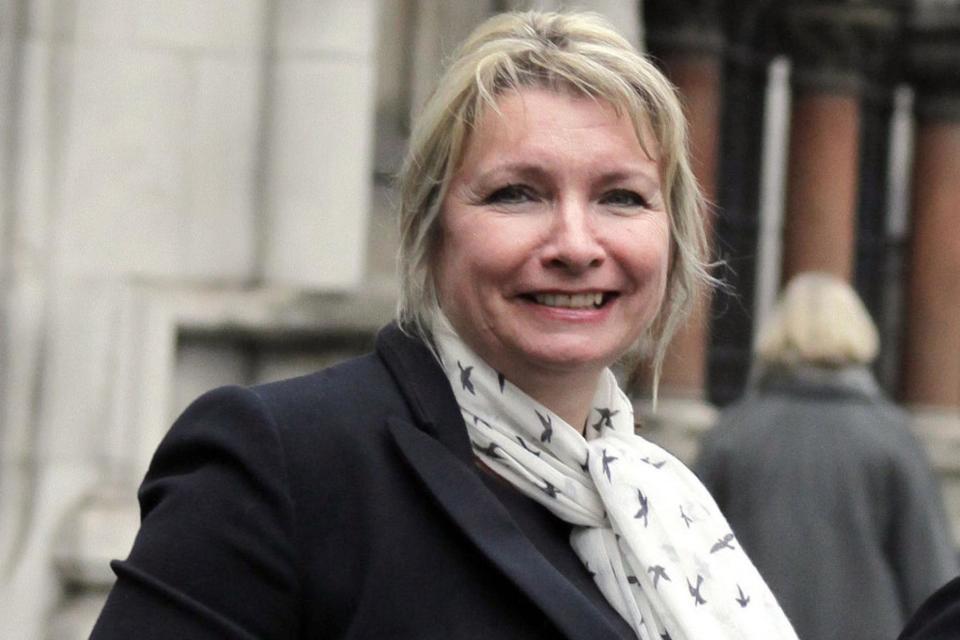Businessman’s fury as judge orders him to support his ex-wife for life…. after she blew £230k payout on homes

A businessman ordered to pay financial support to his ex-wife for life has called for a time limit on maintenance payments so that divorced couples can “move on”.
Graham Mills, 50, told of his “anger and frustration” after judges ruled he should increase the payment he makes to Maria Mills 15 years after they split.
In the 2002 divorce settlement Mrs Mills, 51, was awarded a £230,000 lump sum and £1,100 a month in maintenance so she could buy a house and look after their young son.
Following a two-year legal battle the Court of Appeal this week ruled in her favour, increasing the payments to £1,441 after she ran out of money and built up heavy debts following a string of “unwise” property deals.
The court also told Mr Mills he must support his ex-wife for life, because she is “unable to meet her basic needs”.
In his first interview since the ruling Mr Mills, who has built up and chairs a successful surveying company Technics Group, told the Standard: “I don’t think it’s a good message to send to men or women.

“I don’t think it’s right that after divorce you should be tied together for ever. I don’t think you can move on mentally or physically with that tie in place. The law is wrong in that regard.”
The pair have now been apart for two years longer than the 13 years that they lived together as a married couple.
Mr Mills added: “I feel like I am paying for her mismanagement of finances.
“I’m angry and frustrated the system allows this to happen. I don’t really want this to be about me and her, I think there’s a wider issue about the law. I’ve no need to put her down, I’d rather the effort was concentrated on making the law work for people.”
He called for a mandatory time bar on maintenance after divorce and said he will consider fighting this week’s ruling if his lawyers advise it is an option.
Mrs Mills ran into financial difficulties after she overstretched herself on a series of property purchases.
After buying a home in Weybridge, Surrey, she admitted “unwisely” up- grading to a three-bedroom flat in Wimbledon before moving to a two-bedroom apartment at a Victorian mansion block in Battersea. It meant the ex-Notting Hill estate agent fell into debt as she had “over-financed” and increased her mortgage liabilities on each home, leaving her unable to “meet her basic needs”, judges heard.
She was left with no capital when selling the Battersea flat in 2009 and is back in Weybridge in a rented property, working two days a week as a part-time beauty therapist.
Mr Mills applied to cut or cap his maintenance payments two years ago because their son is now 23 and more independent. He also wanted to free up money to spend on his second wife and their 10-year-old son, with whom he lives at their home in Guildford.
Mrs Mills’s barrister told the court her debts were “run up over many years as a single parent with health difficulties”.
Last year Judge Mark Everall, QC, rejected her claim but Lord Justice Longmore and Sir Ernest Ryder, in the Court of Appeal, overturned his ruling.
Mr Mills said: “It’s like I am insuring her decisions. I shouldn’t be held responsible. It feels like it goes against you if you’re successful. If I hadn’t bothered in life I wouldn’t have those liabilities.
“I think it’s grossly unfair. I’m not entirely sure what my options are but it gives me no incentive to work because it feels like the more I do the more I possibly will have to pay.
“It’s more stress, more money going out — and it’s out of taxable income, so I need to earn even more before I get more for myself. It’s money I’d have had for my new child.
He said he only agreed to the “open-ended” deal as he was told he “had no alternative” due to Mrs Mills being ill at the time and uncertainty on how much she could work in the future.

 Yahoo News
Yahoo News 
